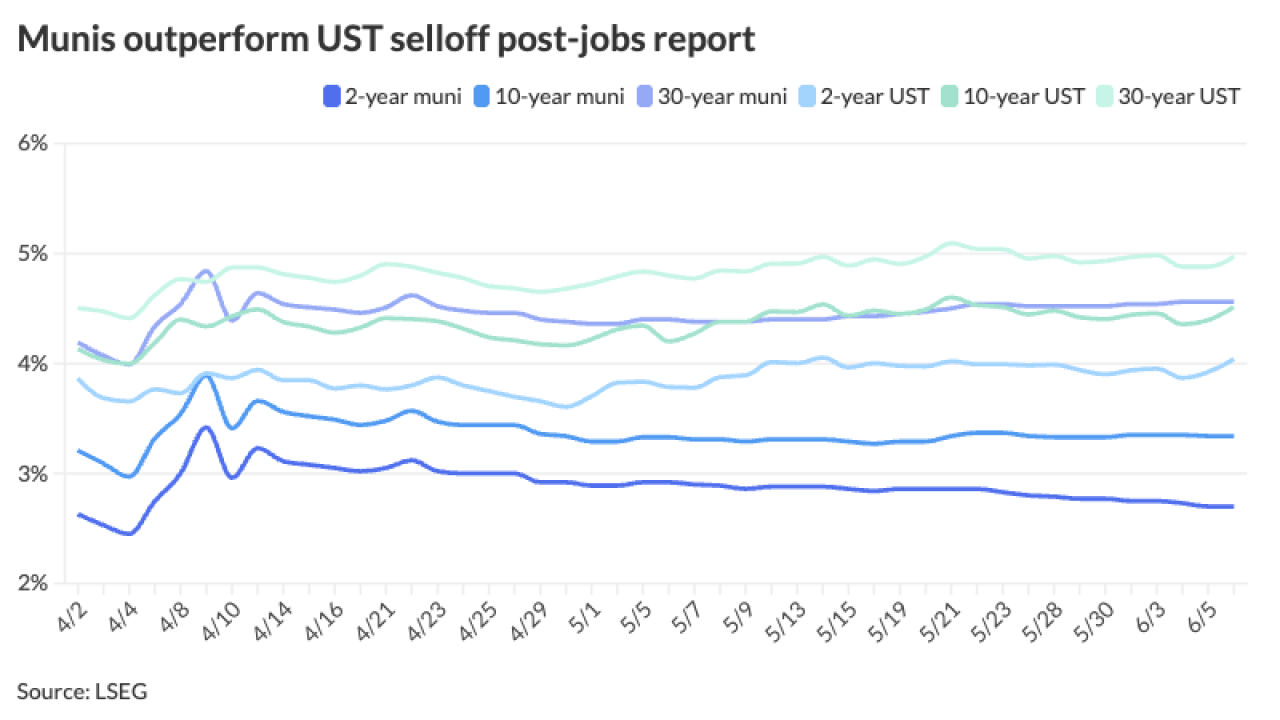Alaska issues debt a little differently than most states, mainly because of its unique tax base. A majority of revenues come from taxes and royalties on oil produced within its borders; there is no state sales tax and no income tax for residents.
In fact, Alaska retired all of its general obligation debt in 1999, from bonds last sold in 1983, according to the state's debt manager, Deven Mitchell.
With petroleum prices showing their volatility in the late 1980s, "the people were not interested in taking on additional debt," he said.
This year may be a little better, since the Department of Revenue forecasts a $100 million surplus next year if oil prices remain high.
It is a little early in the year to predict what bonds the state may sell during the year, Mitchell indicated.
So while the state doesn't issue much debt of its own, its primary debt-related obligation is to reimburse municipalities that finance school construction, he said.
The state offers to reimburse schools for 70% of debt incurred, if authorized by the Legislature as a general fund appropriation. Alaska expects to spend hundreds of millions this year on school construction, since education needs still rank high on Gov. Tony Knowles priorities.
The Department of Education, which administers the reimbursement program, has a list of funding requests adding up to about $500 million, Mitchell said. In the last legislative session, lawmakers authorized $151 million to be issued by July 2004. But how much is authorized this year remains to be seen, since the Legislature is constantly trying to reduce general fund spending. The session ends on May 8.
Mitchell expects to see a bill authorizing another $148 million for the Alaska International Airport System to renovate airports in Anchorage and Fairbanks. Other bills that may arise include debt for port and harbor renovation, accelerating transportation projects, or lease-purchase certificate of participation type legislation for a new psychiatric facility.
But by far, the biggest financial issue on Alaska's horizon is planning for a 1,800-mile oil pipeline to run from its northern portion to the lower 48 states.
Financing the pipeline will be the duty of the federal government and private oil companies. However, it is expected to dramatically expand the Alaskan economy and thereby the state general fund. Revenue may increase between $300 million and $400 million, Mitchell said.
Mitchell has been the state's debt manager and executive director of the Alaska Municipal Bond Bank since August 1997. He has worked in the Department of Revenue, dealing with the state permanent fund and treasury divisions, since 1992. He holds a bachelor's degree in business administration from Northern Arizona University.





